Next-IO™ Anti-LILRB1 Monoclonal Antibody Program
Till today, cancer is still one of the deadly diseases among all chronic conditions, for the reason of high mortality rate and limited therapies. Conventional cancer treatments, including surgery, radio or chemo therapies, have limited anti-tumor effects and have the potential to induce severe side-affects. During the research on cancer therapies, anti-immune checkpoint antibody is emerging as promising targets as they stimulate natural immune responses. To promote this research, Creative Biolabs is proposing a variety of Next-IOTM program and a chance to co-develop these programs. This program aims to develop the therapeutic monoclonal antibody against LILRB1, specifically.
LILRB1 (CD85J, ILT2, LIR1, or MIR7)
Inhibitory leukocyte immunoglobulin-like receptor 1 (LILRB1), also known as CD85J, ILT2, LIR1, or MIR7, is the immune checkpoint expressed on NK cells, some of T/B cells, dendritic cells (DCs), macrophages, basophils, eosinophils, and etc. It contains 4 extracellular immunoglobulin domains, and 4 intracellular immunoreceptor tyrosine-based inhibitory motifs (ITIMs) on the intracellular domain (see Fig.1).
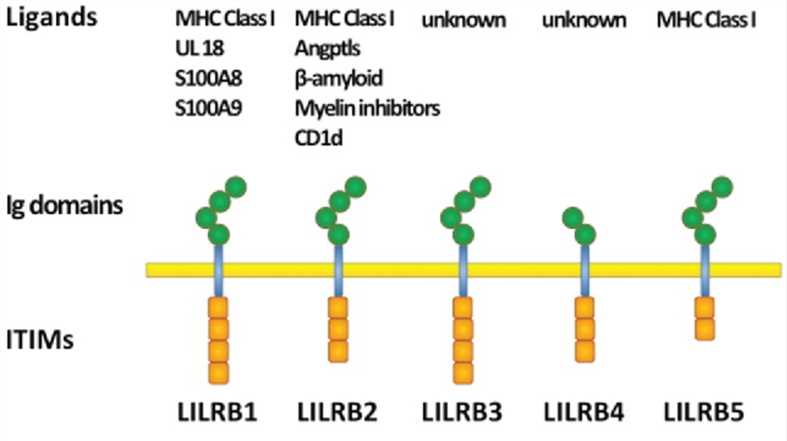 Fig.1 Domain structure of human LILRBs.1
Fig.1 Domain structure of human LILRBs.1
LILRB1 can transduce signals via intracellular ITIMs which then recruit various signaling molecules, leading to inhibitory regulation on immune responses (see Fig.2).
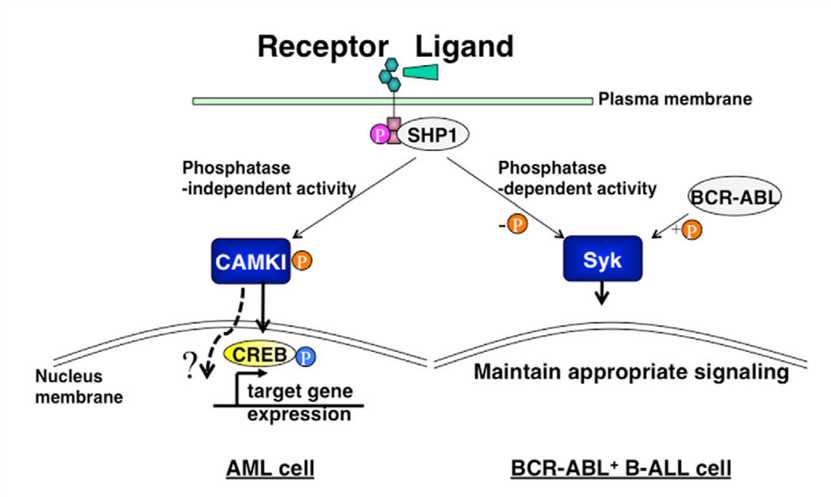 Fig.2 ITIM-containing receptor downstream signaling in different leukemia cells.2
Fig.2 ITIM-containing receptor downstream signaling in different leukemia cells.2
Relevance to Cancer
LILRB1 has a dual-functional role in tumor development - one is being the immune checkpoint while the other is playing as the tumor-sustaining factor. The activation of LILRB1 by relative ligands may contribute to the immune evasion of cancers. Studies found LILRB1 is highly expressed by tumor cells. Blocking LILRB1, on the other hand, restores immune activation and shows anti-tumor efficacy in chronic lymphocytic leukemia (CLL). More importantly, a study on LILRB knockout mice indicated no case on hematopoiesis. For this reason, LILRB may have the potential to study as therapeutic targets in tumor treatments.
Our Anti-LILRB1 Antibody Program
Our anti-LILRB1 mAb program aims to develop the novel therapeutic mAb for cancer treatment. Since LILRB1 is broadly expressed in a variety of immune cells, such as NK cell, macrophage, etc, we will explore its anti-tumor effects by researching different immune pathways. With rich experience in therapeutic antibody discovery and development, our scientists at Creative Biolabs are dedicated to offering strategic collaborations with our partners. Despite monoclonal antibody co-development program, if you are interested in other projects or other antibody modalities, such as bispecific antibody, etc., please feel free to reach out to us for more information.
Published Data
-
Increased LILRB1 expression is found on NK cells of CLL patients.
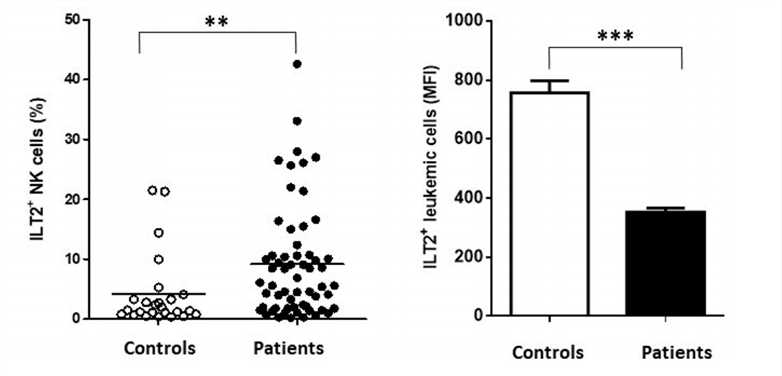 Fig.3 Increased LILRB1 expression is found on NK cells of CLL patients.3
Fig.3 Increased LILRB1 expression is found on NK cells of CLL patients.3
-
Effect of LILRB1 blockade and lenalidomide on the CD69 expression on NK cells in patients with CLL.
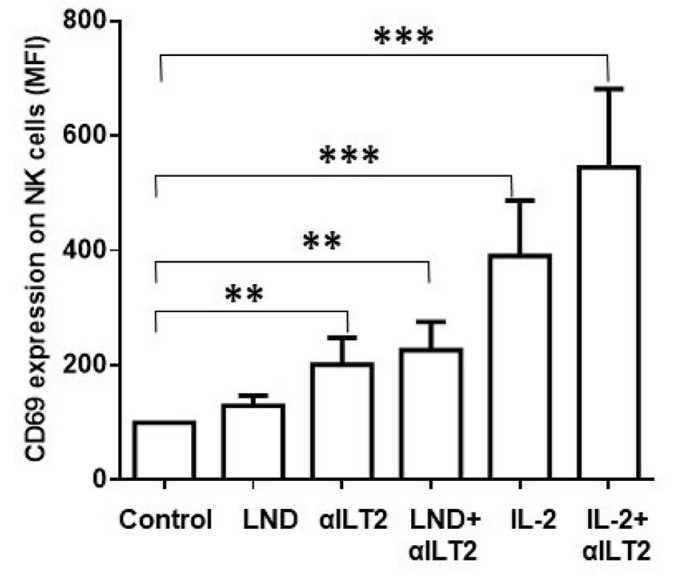 Fig.4 Effect of LILRB1 blockade and lenalidomide on the CD69 expression on NK cells in patients with CLL.3
Fig.4 Effect of LILRB1 blockade and lenalidomide on the CD69 expression on NK cells in patients with CLL.3
-
ILT2 blockade and lenalidomide promote the primary leukemic cells’ elimination from a study on patients with CLL.
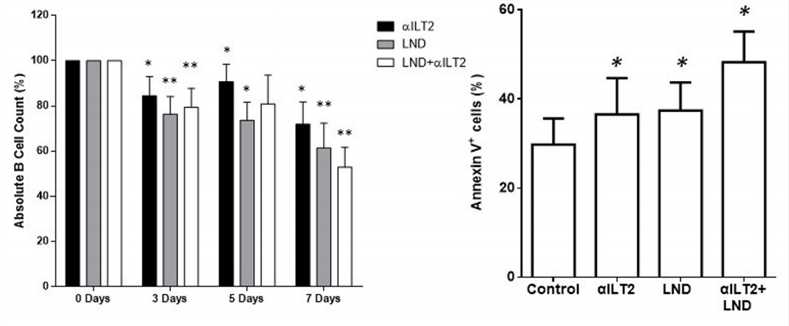 Fig.5 ILT2 blockade and lenalidomide promote the primary leukemic cells' elimination from a study on patients with CLL.3
Fig.5 ILT2 blockade and lenalidomide promote the primary leukemic cells' elimination from a study on patients with CLL.3
Based on these data, LILRB1 (CD85J, ILT2, LIR1, or MIR7) was shown to be a potential target to treat cancer and blocking LILRB1 (alone or in combination with other treatments) is a promising immunotherapeutic strategy to treat cancers.
Program Planning and Management
We have extensive experience in performing comprehensive program developments and effective problem-solving. For our Next-IOTM programs, we are committed to delivering the program to the pre-IND stage within about 1.5 years. The accurate timeline will be determined on a case-by-case basis. Here is a draft timeline for your glance.
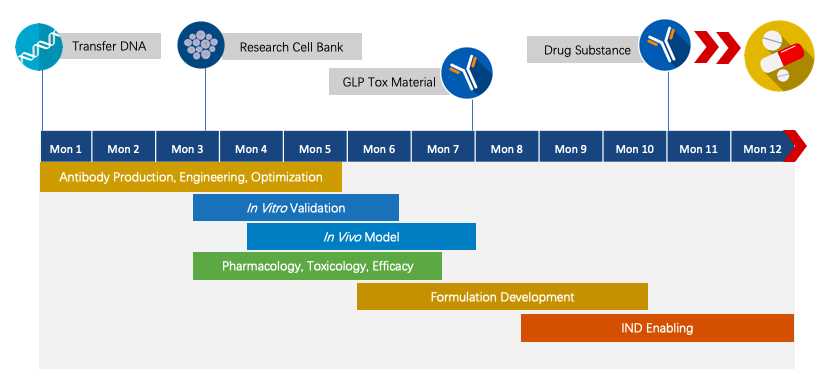 Fig.6 The timeline of Next-IOᵀᴹ programs.
Fig.6 The timeline of Next-IOᵀᴹ programs.
Collaboration
Creative Biolabs is dedicated to researching therapeutic antibody discovery and development programs with aims to co-develop a complete biologics drug pipelines with our partners. Creative Biolabs offers tailored Next-IO™ programs to our dear clients. Please feel free to contact us for more information!
References
-
Kang, Xunlei et al. "Inhibitory leukocyte immunoglobulin-like receptors: Immune checkpoint proteins and tumor sustaining factors." Cell cycle. 15,1 (2016): 25-40.
-
Zhang, FeiFei et al. "Inhibitory leukocyte immunoglobulin-like receptors in cancer development." Science China. Life sciences. 58,12 (2015): 1216-25.
-
Villa-Álvarez, Mónica et al. "Ig-Like transcript 2 (ILT2) blockade and lenalidomide restore NK cell function in chronic lymphocytic leukemia." Frontiers in immunology. (2018) 9 2917.
For Research Use Only | Not For Clinical Use


 Fig.1 Domain structure of human LILRBs.1
Fig.1 Domain structure of human LILRBs.1
 Fig.2 ITIM-containing receptor downstream signaling in different leukemia cells.2
Fig.2 ITIM-containing receptor downstream signaling in different leukemia cells.2
 Fig.3 Increased LILRB1 expression is found on NK cells of CLL patients.3
Fig.3 Increased LILRB1 expression is found on NK cells of CLL patients.3
 Fig.4 Effect of LILRB1 blockade and lenalidomide on the CD69 expression on NK cells in patients with CLL.3
Fig.4 Effect of LILRB1 blockade and lenalidomide on the CD69 expression on NK cells in patients with CLL.3
 Fig.5 ILT2 blockade and lenalidomide promote the primary leukemic cells' elimination from a study on patients with CLL.3
Fig.5 ILT2 blockade and lenalidomide promote the primary leukemic cells' elimination from a study on patients with CLL.3
 Fig.6 The timeline of Next-IOᵀᴹ programs.
Fig.6 The timeline of Next-IOᵀᴹ programs.
 Download our brochure
Download our brochure